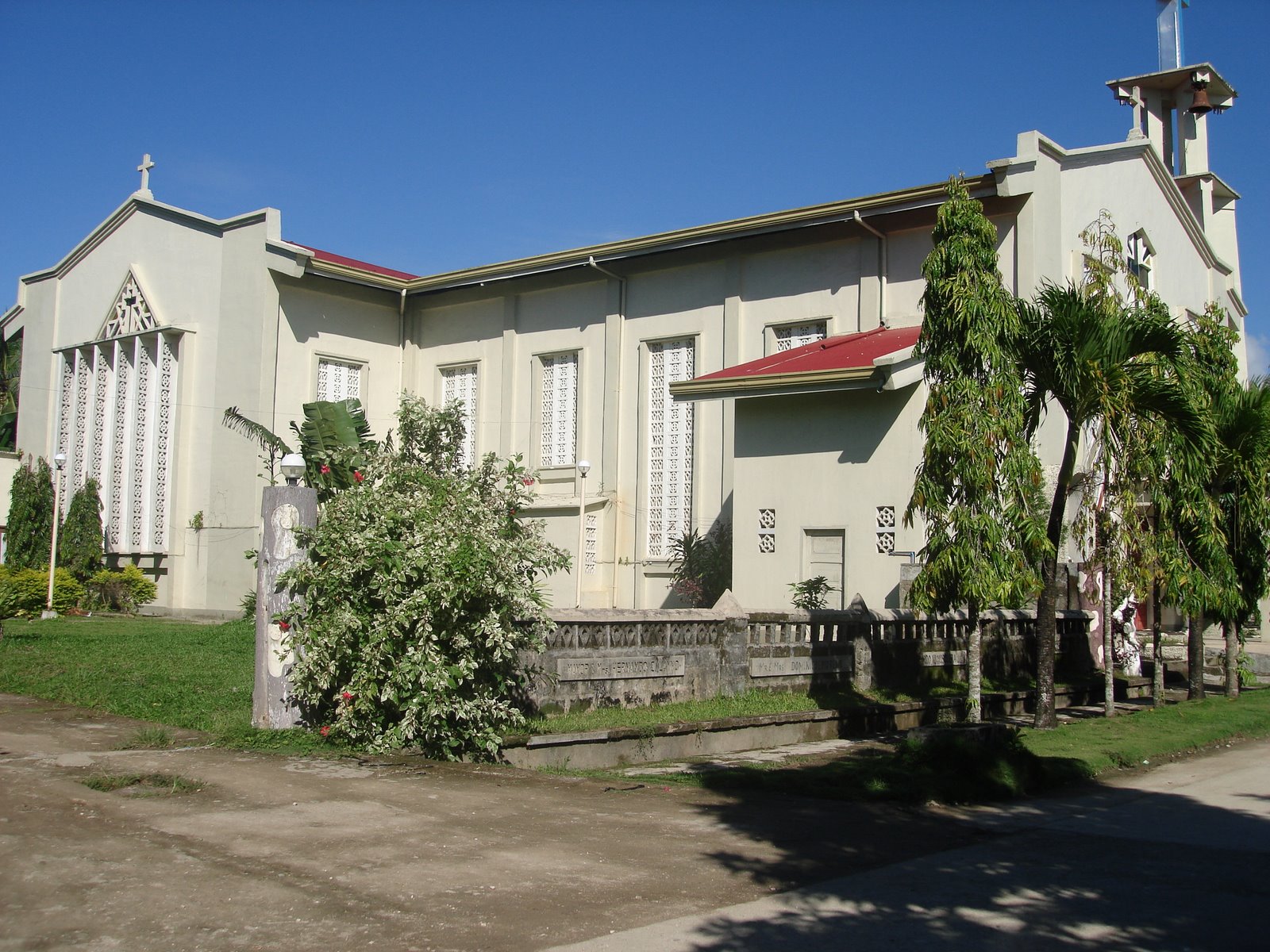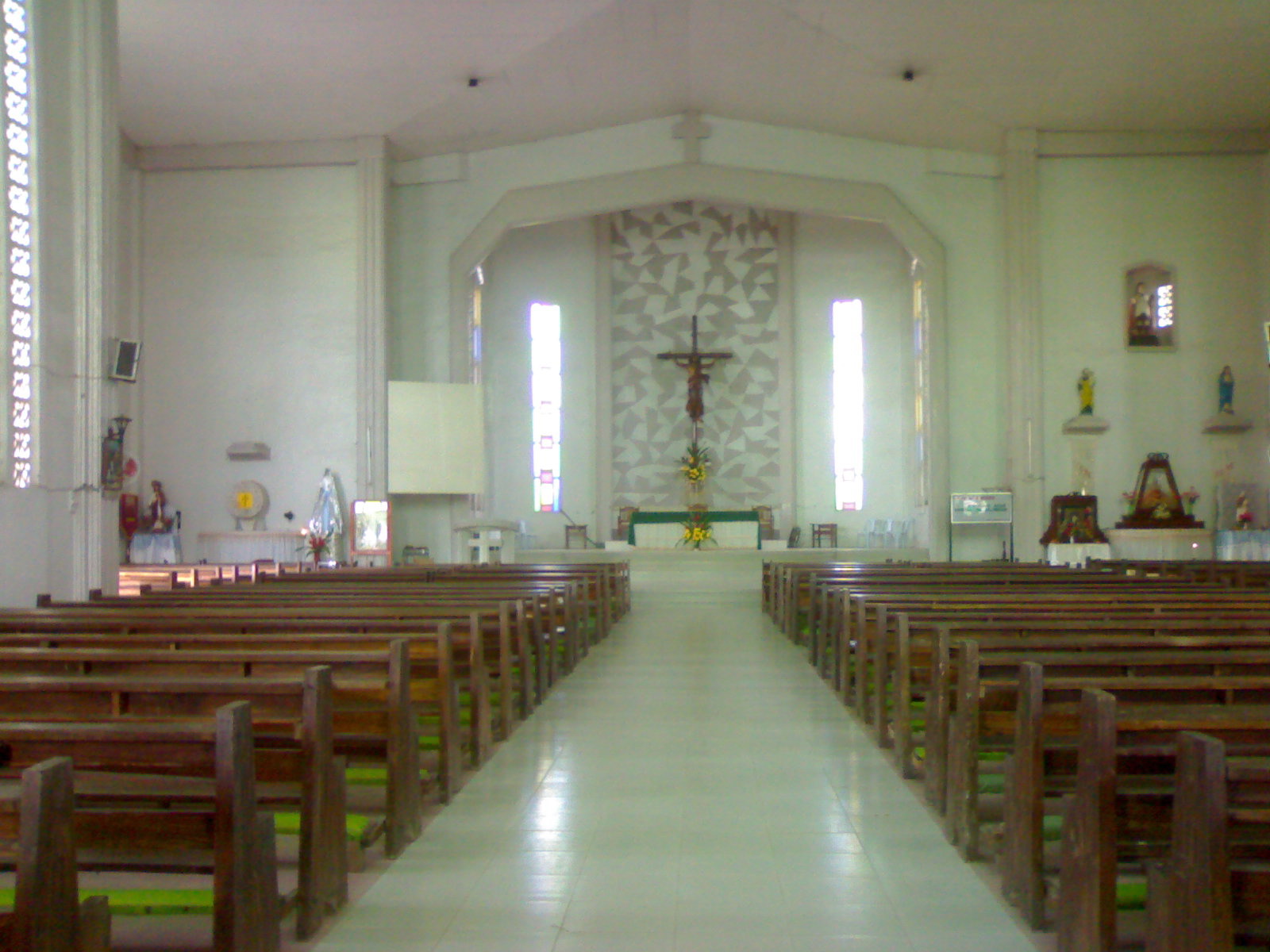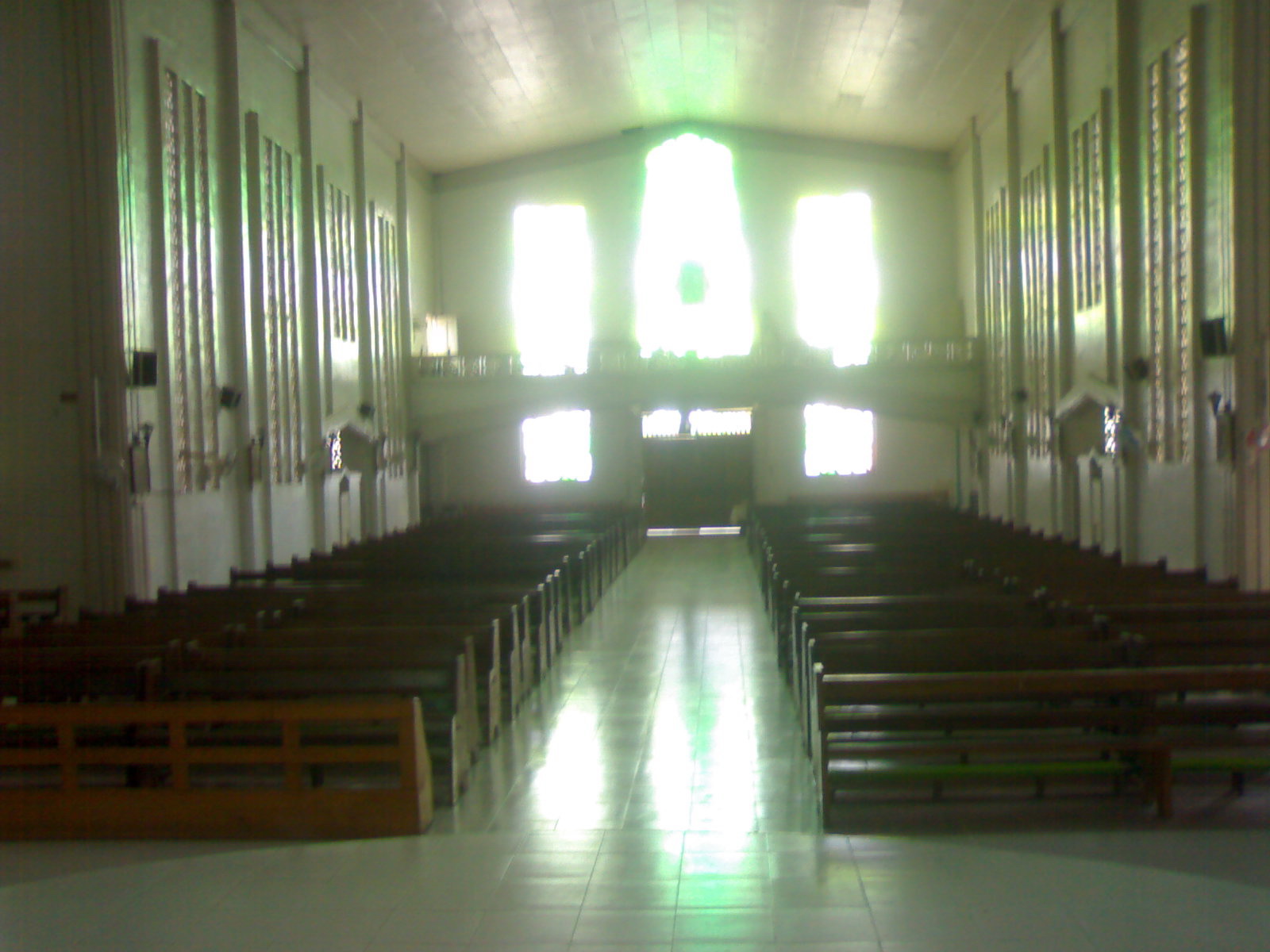 For Roman Catholics in Lianga, at least for those among them conscious of their religious obligations, Sundays mean getting up early in the morning in order to prepare for the Sunday mass at 6:30 AM. They have to because that mass happens to be the only one held regularly for the day for the reason that Lianga parish has more than a dozen other small barangays or villages belonging to it and the parish priest has a full schedule going the rounds and saying masses at all of the small chapels in these communities.
For Roman Catholics in Lianga, at least for those among them conscious of their religious obligations, Sundays mean getting up early in the morning in order to prepare for the Sunday mass at 6:30 AM. They have to because that mass happens to be the only one held regularly for the day for the reason that Lianga parish has more than a dozen other small barangays or villages belonging to it and the parish priest has a full schedule going the rounds and saying masses at all of the small chapels in these communities.My parents, especially my mother, are devout Catholics so from an early age my siblings and I were expected on Sunday mornings to wake up early, shower, get dressed and be ready to leave for church before the frenetic pealing of the church bells signaled the start of the mass. The local parish church is often full of worshippers on Sundays and seating spaces on the pews were always at a premium. So getting there a bit early before the last minute rush was always advisable unless you want to do penance by standing on the aisles for the entire duration of mass.
But it seems to me now when I look back on those days that despite my strict religious upbringing, I was, like any other normal young child, never really cowed, made docile and made to sit still for long by fear and awe for the religious power and majesty I was taught was embodied in the celebration of the Eucharist. I fidgeted, squirmed with impatience and found ingenious ways to get away, sneak out of the church and out of the watching eyes of my parents then find my playmates and spend the rest of the mass playing with them in the church courtyard.
 Whatever guilt I used to feel guilty about missing out on the mass later on was however mitigated by the gradual realization as I grew older that socializing while attending mass, in Lianga at least, is certainly not something being done only by children and teenagers but even by adults although not overtly. They have simply much more refined ways of doing it while at the same time giving the appearance of enthusiastic participation in community religious worship.
Whatever guilt I used to feel guilty about missing out on the mass later on was however mitigated by the gradual realization as I grew older that socializing while attending mass, in Lianga at least, is certainly not something being done only by children and teenagers but even by adults although not overtly. They have simply much more refined ways of doing it while at the same time giving the appearance of enthusiastic participation in community religious worship.The truth is, in Lianga like in many small towns, going to church on the Sabbath is not only a religious act but a social event as well. People dress up in their best clothes and expect to spend time to chat, touch base and enjoy the company of friends and acquaintances before the mass starts, at dull interludes during the ceremonies and before walking back to their homes after. The chance to do some civilized gossiping and swapping of all the latest, juicy community news is often a temptation too hard to resist even in the midst of the solemnity of such occasions.
During the stretches of long, droning and boring sermons, for example, it is a common habit of many churchgoers, particularly the males, to make a surreptitious, discrete exit via the side doors and meet up with contemporaries for a smoke or two and some schmoozing. At the end of the homily, there is a quick, concerted and hasty dash back to the pews. The chatting is not over, however. It resumes after the communion when the priest and lay ministers are busy with the rest of the parishioners and finally ends when the faithful are called for the final blessing. Then it's quick, hurried goodbyes as everyone bustles home to quell the quiet rumbling of stomachs anxious for that long delayed breakfast.
 The women do their best gossiping before the mass while waiting for the priest to make his appearance and after the mass while the parishioners are making their way home. They often gather in small groups chattering away and making most of the brief time they have for chatting by the quality and variety of the chatter. They have to be fast yet thorough about it though because the other members of the family are often already very eager to go home, get fed, change clothes and enjoy the rest of the weekend.
The women do their best gossiping before the mass while waiting for the priest to make his appearance and after the mass while the parishioners are making their way home. They often gather in small groups chattering away and making most of the brief time they have for chatting by the quality and variety of the chatter. They have to be fast yet thorough about it though because the other members of the family are often already very eager to go home, get fed, change clothes and enjoy the rest of the weekend.Such behavior, while not certainly ideal for a community of believers gathered in collective worship of the Almighty, is, in my view, only a natural manifestation of the gregarious nature of the human animal and the extremely close personal ties and the spirit of community solidarity that exist between residents of small towns like Lianga. I have attended masses in the city and have been more than a bit disappointed at their rather impersonal nature and apparent lack of a prevailing feeling of community togetherness and unity among the worshippers. After the final blessing, everyone goes home alone and anonymously.
I prefer the boisterous and ebullient atmosphere of Lianga's Sunday worshippers streaming out of the church and slowly making their way home after mass, their voices loud and strident and their laughter and bonhomie natural and unrestrained. It is, to my mind, more than natural. It is also very much more real and tangible.
No comments:
Post a Comment